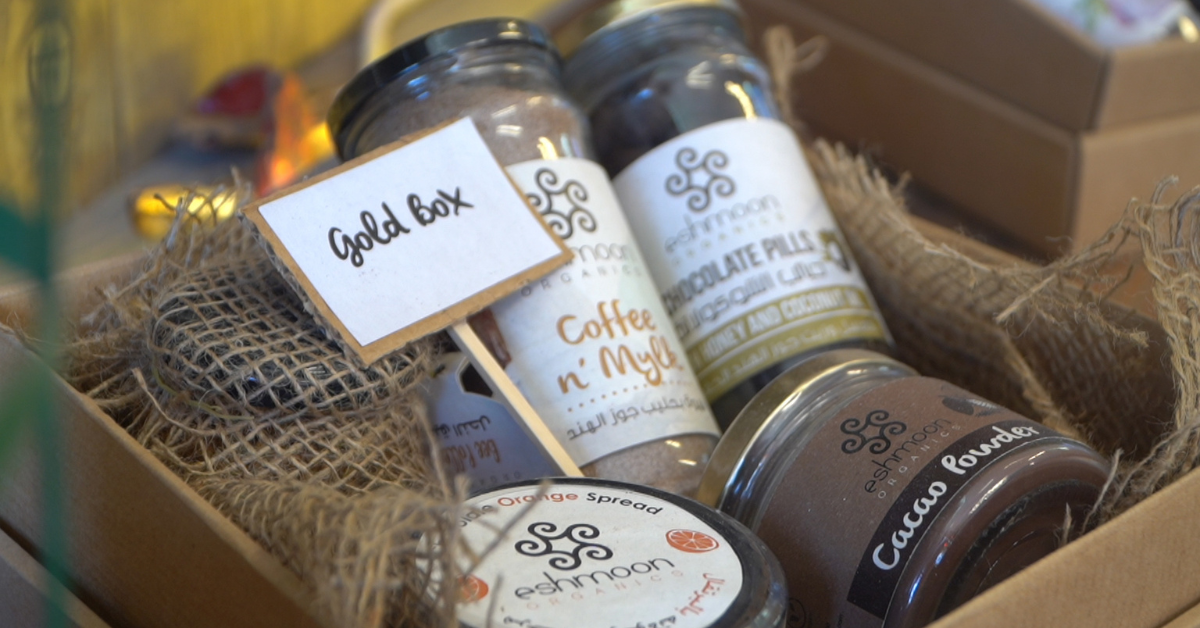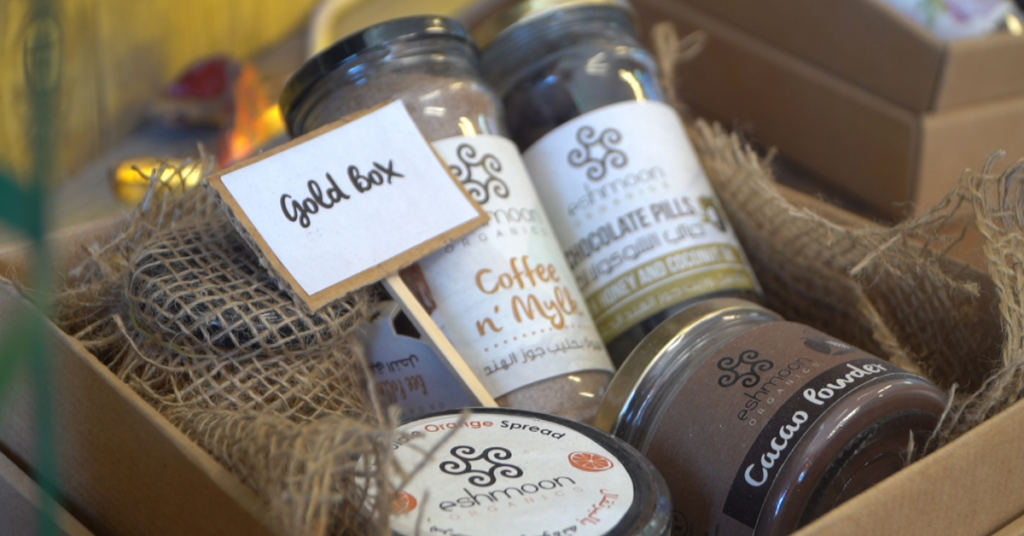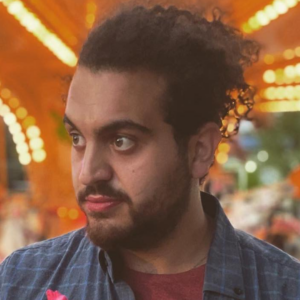
Eshmoon started in 2012, aiming to create alternative chocolate with a locally sourced sweetener. Chocolate with carob molasses was their first and most successful product. This innovative conception inspired them to start producing healthy chocolate bars alongside chocolate spreads, then they created their cereal, and today Eshmoon has about 130 products.
We talk to Samer Toutoungy, founder of Eshmoon, and QOOT member, about innovation in food, international food trends, and the future of his company.
How do you choose the suppliers and ingredients for every product?
The creative process is a back-and-forth procedure that contains a lot of repetition. We keep trying until we reach a taste that satisfies the team. A similar method applies to the suppliers, where we try distinct ones until choosing the best out of the available options, and mainly we consider the quality and price. Yet, suppliers with innovative concepts have the best chance of qualifying. It requires courage to display a new product in the market, so the entire process is considered a challenge.
What is the brand principle of Eshmoon and your products?
Our brand guide is to have health-conscious products, and that’s the primary purpose of Eshmoon, so we don’t use sugar or gluten in some products or dairy products, keeping in mind that most of our products contain organic ingredients. Eshmoon is all about natural mixtures, zero colorants or preservatives, and no pesticides. Our team strives to find the elements inside Lebanon, so we rely on the local market of suppliers.
What are your main sales channels?
Eshmoon is available on Amazon, Noon in Dubai, and some markets in Dubai, Kuwait, Qatar, and Oman. We started shipping to Australia, America, Germany, and Bulgaria. Our export channels are getting bigger, and our online platform as well. Locally, we sell in our shop, alongside local supermarkets. After the financial crisis, we started focusing on the export market. Still, we didn’t ignore the local Lebanese market because this is where we started initially, and Eshmoon is a Lebanese brand. So far, we are doing well on both fronts.
What is your advice for other small companies with innovative ideas?
The science of creativity is hard, so those trying to innovate must have the passion and drive to create and innovate; some people are already gifted, while others must train their brains to think creatively. Nothing comes by chance for a creative person or by mistake, simply because the term mistake doesn’t exist. Everything that happens must be observed as a new chance and making the best of it shall be the goal. That’s how for example, we created our chocolate spread product, which we first considered a mistake, but we saw a chance in it to make a new product. Business-oriented people will focus on accounting and numbers, and when founders reach this point, they have to stop, step back a bit, and give the brain its space; otherwise, innovation might sound impossible.
Why is the R&D process considered one of the significant steps for every food company?
Research and Development (R&D) is about researching and developing theories and imagination into a product. R&D is about testing and trying, and once you try, you have to expect several failures, alongside money and time investment, before bearing an actual product. The key is to enjoy the whole process, and I’m in love with the entire R&D idea.
Who must consider Eshmoon products, and who is your target audience?
People looking for health-conscious products, young professionals, new moms, older adults with health problems, and Lactose and Gluten intolerant people. Our products might not have the lowest prices in the market, but our customers trust our ingredients, taste, and quality. I was on a trip outside Lebanon, and I assure you that the current trend is focusing on healthy products that contain less sugar and can decrease the probability of Diabetes. That is why sugar-free products are a priority now. Today, many people are taking health courses and visiting nutritionists to solve their health problems that might come from gluten, dairy, and sugar products. Eshmoon always targets those people, alongside consumers who want to try a unique food experience.
What are the plans for Eshmoon?
Eshmoon’s future is divided into two stages: the near future and the long one. For the near one, I proudly announce that Eshmoon has recently received a grant allowing us to create a fruit leather factory. It is similar to Amar Al Dine (Qamar al-Din is an apricot fruit leather), but we will use different fruits and flavors. We are working on creating a beverage, an energy drink consisting of local and natural ingredients. It’s a collaboration with another innovative company, Cidra, which mainly produces beverages. Here comes the importance of clusters that open doors for small companies to meet other local brands and create collaboration opportunities. For the far future, Eshmoon is working on a line of natural cosmetics but is still in the branding phase, and for our website, we’ve been working on it and aiming to become a franchise concept.







